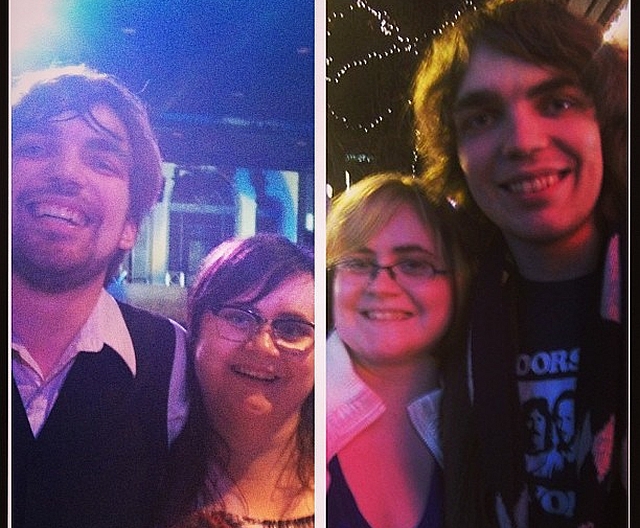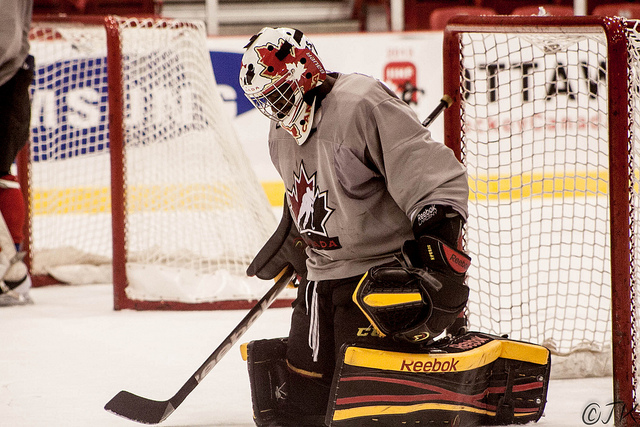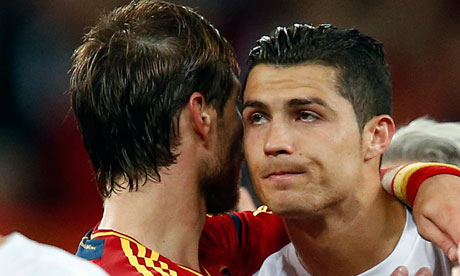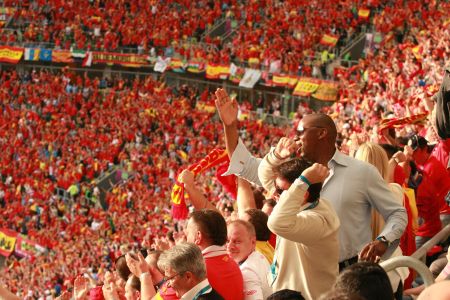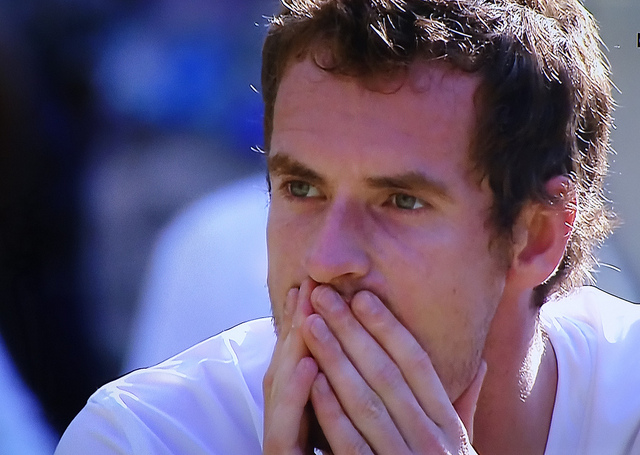
Photo Keith Williamson/Flickr
In the final of the 2013 Sony Open in Miami, Andy Murray refused David Ferrer a calf rub.
This is important because it shows how Murray was able to beat the best fighter in tennis in the Gentleman’s Final at Wimbledon Sunday. Before winning the U.S. Open last year, Murray had made four Grand Slam finals and six semifinals over five years (three of those to Novak Djokovic) before winning his first major. His inability to break into the very top tier of the game, with an expectant Britain watching, was blamed on everything from lack of maturity to lack of masculinity to lack of Britishness.
On this occasion, down 4-1 in the tiebreak of the third set, Ferrer collapsed with cramps during a grueling, two-hour-forty-five-minute final and Murray refused him a second calf rub. Ferrer was left to ineffectually hop on one leg, racket knocked out of his hand as a laser-focused Murray methodically eliminated him on three straight points. The post-match hug was not like two prize fighters leaning against each other. Despite his fatigue earlier in the match Murray, in that moment, was not hurting.
This was a reversal of the Murray that lost to Roger Federer at Wimbledon in 2012. (I swear I’m getting to Wimbledon 2013 soon.) Murray in that match was like a young protagonist in a high-fantasy novel, going up against a wizard much too powerful for him. He was powerless, losing his final three sets; he choked “I’m getting closer!” in his post-match interview, but he didn’t quite seem like he knew how.
He did get closer. 40 days later in the Olympic final, he beat Federer in straight sets, the Swiss magic gone. Though it was at the All England centre court, it was not truly Wimbledon or even a Grand Slam. But his dismantling of Federer, his emotion and his unsteady walk across the scoreboard were building blocks to the belief that he could make it on that level. 36 days after that, he finally did, in the grueling five-hour match everybody thought this final was going to become.
The first point of this match, the slate clear and full of anticipation, was a 20-shot volley won by Murray. But Djokovic survived three break points to take the game. Djokovic in that first set was ready and Murray was frustrated. He was a step ahead; he seemed in control and was running the Brit all over the court. Murray broke, and the Serb broke back. Murray broke again. But Djokovic slipped onto his hand when he had the chance to stay in it, and Murray broke a third time to take the set.
In the second half, Djokovic, known as a steadfast fighter, wavered. He came out clutching his left wrist, and the pains kept mounting. In the eleventh game of the second set, already out of challenges, he screamed at the umpire for not making a call in his favour. (He was wrong.) Murray broke him then to lead 6-5, and went to a 40-0 lead before acing to take the second set.
For those who had hope, Murray broke to start the third. But they traded break points throughout the set. Murray looked dominant, but Djokovic refused to be flattened. He began to look doomed, though, in the ninth game. Tired, Djokovic chipped it down Murray’s right hand line, ball bouncing slowly but well-placed. Murray raced back across and flipped it down the sideline to go up 5-4.
He took the first point of the final game. And the next. And the next. And so he sat, one year after being mastered by Federer, with three championship points in the Wimbledon final. But though Djokovic was angry and tired and hurt, he doesn’t stop. He denied all three points get to deuce. Djokovic took advantage twice, and with each came the sudden realization that perhaps the coronation was over; perhaps we would be here for another two hours, perhaps the power and confidence would be restored to the Serb and the masses on the Hill would be disappointed again.
But Murray, stone-faced, did not wail in disbelief as Djokovic smirked. He had the same laser-sharp focus, and despite the fact that Djokovic did have much more to lose than Murray did, he refused to allow him respite. From deuce, Djokovic flipped a ball high and to Murray’s left corner. The Brit gets it over the net and Djokovic approached, sending it to the right. Murray replied right at Djokovic, and the World No. 1 let it past him.
Advantage Murray, and fourth championship point. The crowd, boiling over, howled at every Djokovic ball that touched the brown grass at Murray’s feet that looked like it could even maybe be out. But Djokovic, for the eighth time in the match, put the ball into the net. Murray had won it.
So much of the anticipation around Murray throughout his career was based on the expectations on him as a British men’s player. So much of his distress in past years has been his disbelief. But on Sunday, that all existed outside of Murray, with his focus on the opponent getting more tired and frustrating by the shot. The match was grueling. In victory, sweat ran off his back and down his shirt, but he did not slouch or slump.
Because unlike Djokovic, Murray was not hurting.







